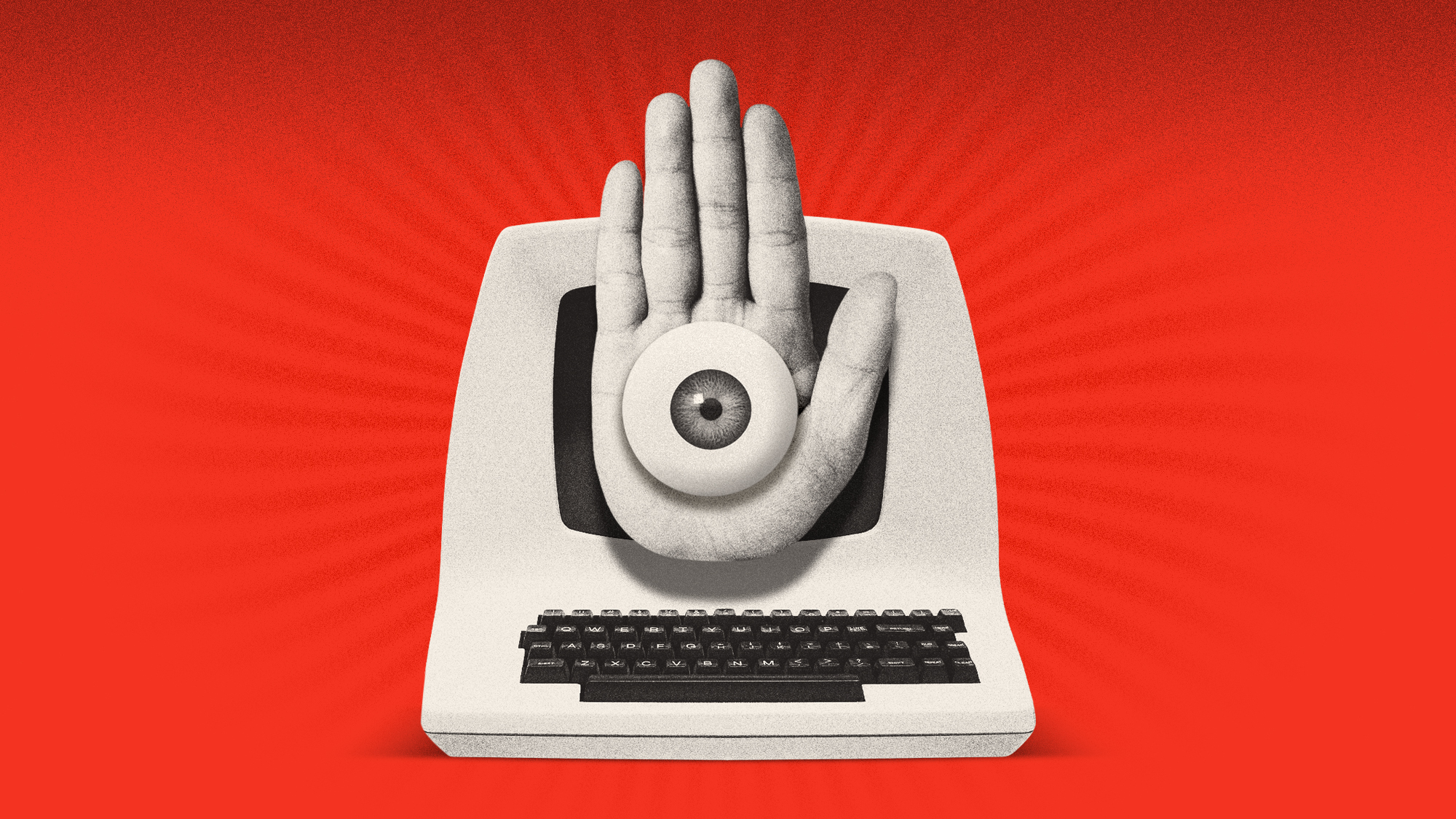Global internet freedom declines for eighth consecutive year
Freedom House report finds more and more countries are following China’s lead and cracking down online

A free daily email with the biggest news stories of the day – and the best features from TheWeek.com
You are now subscribed
Your newsletter sign-up was successful
Internet freedom around the world has declined for the eighth consecutive year, raising fears that state censorship online is becoming the norm rather than the exception.
A new report by think tank Freedom House found that, of the 65 countries it assessed, 26 experienced a deterioration in internet freedom over the past year. Almost half of all declines related to elections.
It is the eighth year in a row the global survey of internet freedom has recorded a drop.
The Week
Escape your echo chamber. Get the facts behind the news, plus analysis from multiple perspectives.

Sign up for The Week's Free Newsletters
From our morning news briefing to a weekly Good News Newsletter, get the best of The Week delivered directly to your inbox.
From our morning news briefing to a weekly Good News Newsletter, get the best of The Week delivered directly to your inbox.
According to Freedom on the Net 2018, governments around the world are tightening control over citizens’ data and using claims of “fake news” to suppress dissent, eroding trust in the internet as well as the foundations of democracy.
At the same time, the regime in China has become more brazen in providing like-minded governments with technology and training that enable them to control their own citizens online.
During the early decades of the internet, many influential thinkers claimed the internet, by its very nature, would spread democracy and freedom of speech.
“In fact, as the Freedom House report demonstrates, the internet is an excellent tool for social control, enabling surveillance and guiding of public opinion that would have been impossible in the past,” says CNN.
A free daily email with the biggest news stories of the day – and the best features from TheWeek.com
“Democracies are struggling in the digital age,” says Freedom House president Michael Abramowitz.
China has long led the way in state cyber-security and censorship. Its Great Firewall maintains a strict measure of control over what Chinese citizens can view online, and blocks access to platforms such as Facebook and Google entirely.
Earlier this year, Google faced a huge backlash after it was revealed to be working on a censored version of its search engine to service the lucrative Chinese market.
China’s success in censoring what was previously thought to be an uncontrollable tool for free speech and the spread of information has spawned imitators across the world.
Countries such as Egypt and Iran, have “rewritten restrictive media laws to apply to social media users, jailed critics under measures designed to curb false news, and blocked foreign social media and communication services”, says the Freedom House report.
“Of course, there are tradeoffs between freedom and security,” says The Verge. The report is critical of Sri Lanka and India, which have periodically shut down or limited access to the internet. However, in both cases, citizens were being murdered by mobs that had encountered misinformation spread on social media to fuel ethnic and religious conflict.
While China, Iran and Syria topped Freedom House's index of internet censorship, the United States also saw its internet freedom decline in 2018, reflecting obstacles to access, limits on content and violations of users’ rights.
Its single-digit drop in the rankings may not seem like much, says Tech Crunch, “but many see the US as a beacon of free speech and expression - a model that others aspire to replicate.”
“As the report found, that goes both ways,” says the tech site. “The US has its part to blame for the decline in at least 17 countries where ‘fake news’ has been co-opted by oppressive regimes to justify crackdowns on dissent and free speech.”
-
 Political cartoons for February 16
Political cartoons for February 16Cartoons Monday’s political cartoons include President's Day, a valentine from the Epstein files, and more
-
 Regent Hong Kong: a tranquil haven with a prime waterfront spot
Regent Hong Kong: a tranquil haven with a prime waterfront spotThe Week Recommends The trendy hotel recently underwent an extensive two-year revamp
-
 The problem with diagnosing profound autism
The problem with diagnosing profound autismThe Explainer Experts are reconsidering the idea of autism as a spectrum, which could impact diagnoses and policy making for the condition
-
 Will online age checks doom internet freedom?
Will online age checks doom internet freedom?Today's Big Question Or do they protect children from harm?
-
 Meta's right turn on red: Zuckerberg turns toward MAGA
Meta's right turn on red: Zuckerberg turns toward MAGATalking Points Zuckerberg is abandoning fact-checkers to embrace "free speech," a familiar refrain for Trump's cohort
-
 Elon Musk's 'frivolous' but precedent-setting free speech fight with Media Matters
Elon Musk's 'frivolous' but precedent-setting free speech fight with Media MattersTalking Point The lawsuit is just the latest in Musk's ongoing tension with social media watchdogs
-
 How child safety internet laws could affect us all
How child safety internet laws could affect us allTalking Point Critics warn that the laws are subversive tactics aimed at free speech
-
 How Montana's total TikTok ban is supposed to work
How Montana's total TikTok ban is supposed to workSpeed Read
-
 Elon Musk's Twitter abruptly suspends several journalists who cover Elon Musk and Twitter
Elon Musk's Twitter abruptly suspends several journalists who cover Elon Musk and TwitterSpeed Read
-
 Elon Musk bans Twitter account tracking his private jet, threatens 20-year-old owner with 'legal action'
Elon Musk bans Twitter account tracking his private jet, threatens 20-year-old owner with 'legal action'Speed Read
-
 How cybercriminals are hacking into the heart of the US economy
How cybercriminals are hacking into the heart of the US economySpeed Read Ransomware attacks have become a global epidemic, with more than $18.6bn paid in ransoms in 2020